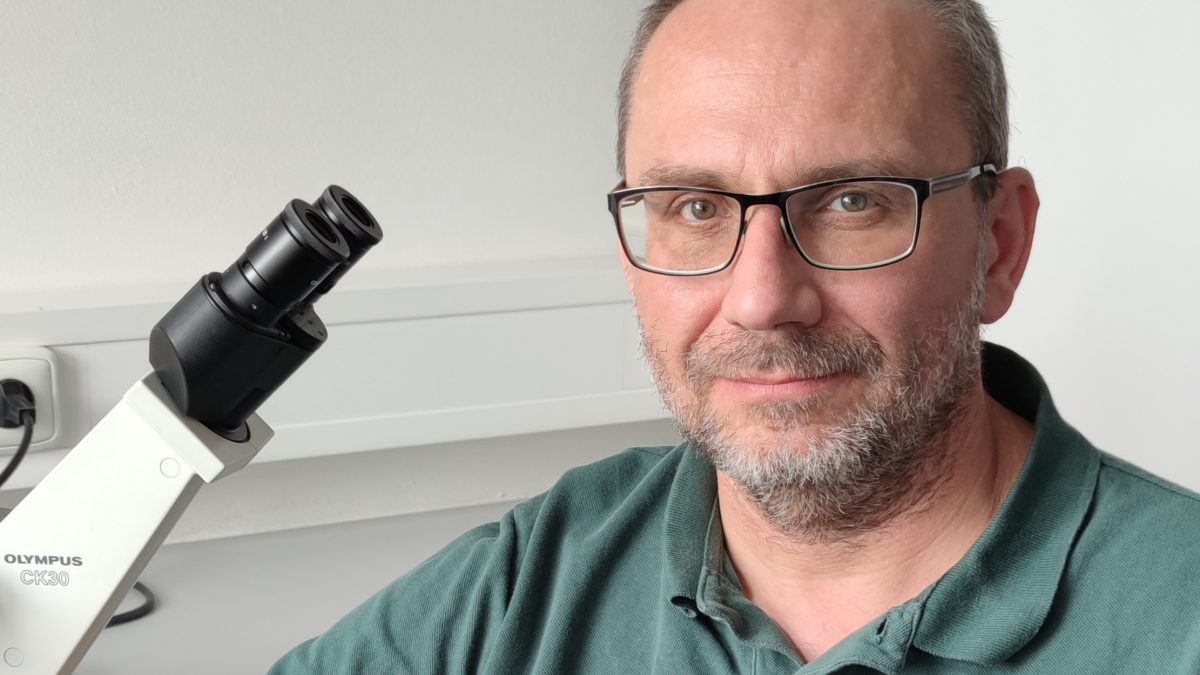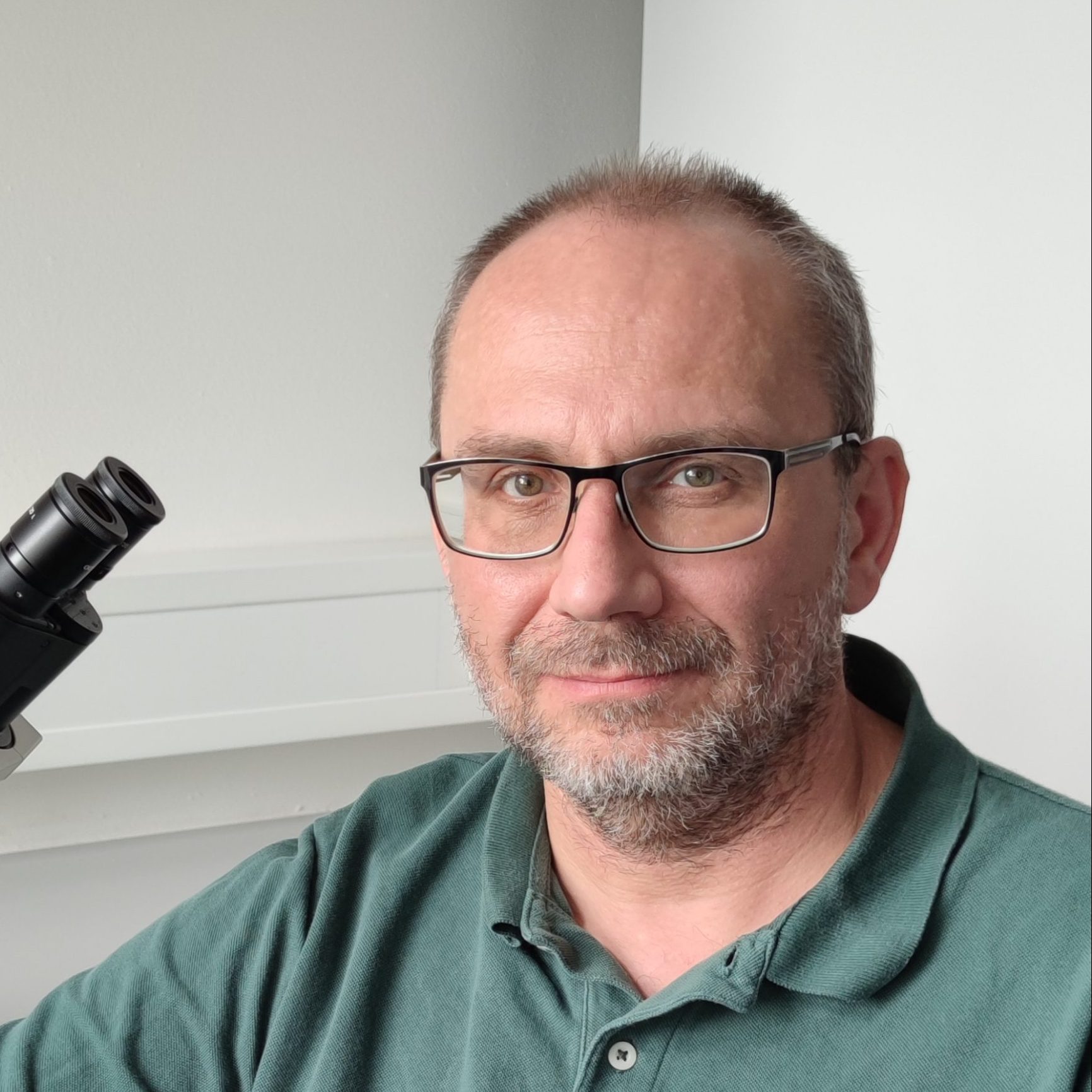Laboratory of Tumor Immunology
Head: Marek Kovář
Prague node
HOME INSTITUTION
Institute of Microbiology of the Czech Academy of Sciences
RESEARCH PROGRAMME(S)
RP 2 - Research and development of anticancer pharmaceuticals and therapeutic methods
Immunology is where intuition goes to die.
- Mission: To design and test novel advanced chemotherapy by the use of polymeric carriers and immunotherapy based on IL-2 agonist with selective stimulatory potential for various immune cell subsets.
- Vision: To develop polymer conjugates bearing cancerostatic drug and immunotherapeutics based on IL-2 agonist with potential to be used for therapy of hard-to-treat tumors.
Our work deals with the design, development, and in vitro and in vivo testing of the biological activities of polymer nanotherapeutics. This research is performed in a close collaboration with the group of Tomas Etrych from the Institute of Macromolecular Chemistry CAS. The polymer nanotherapeutics we focus on are based on HPMA copolymers of various structures (linear, di-block, grafted, star-shaped) with one or more biologically active compounds (cytostatic drugs, STAT3 inhibitors, P-gp inhibitors) covalently attached by a defined bond (hydrazone, amide). This facilitates a controlled release of the drug in a pharmacologically active form at the site of the pathological process, i.e., in the tumor. We evaluate these polymer nanotherapeutics in terms of their cytostatic and cytotoxic activities, induction of apoptosis, and inhibition of selected signaling pathways in vitro. Promising candidates are then tested in mouse models for their toxicity and the maximum tolerated dose (MTD) is determined by subsequent testing of their antitumor activity in vivo. The aim of our work is to develop polymer nanotherapeutics that have a higher efficacy in antitumor therapy, lower toxicity (less severe side effects), and can overcome certain biological barriers in the treatment of malignant diseases, such as natural insensitivity to chemotherapy or multidrug resistance.
SELECTED PUBLICATIONS
- Spangler JB, Tomala J, Luca VC, Jude KM, Dong S, Ring AM, Votavova P, Pepper M, Kovar M, Garcia KC. Antibodies to Interleukin-2 Elicit Selective T Cell Subset Potentiation through Distinct Conformational Mechanisms. Immunity. 2015 May 19;42(5):815-25. DOI: 10.1016/j.immuni.2015.04.015
- Sivak L, Subr V, Tomala J, Rihova B, Strohalm J, Etrych T, Kovar M. Overcoming multidrug resistance via simultaneous delivery of cytostatic drug and P-glycoprotein inhibitor to cancer cells by HPMA copolymer conjugate. Biomaterials. 2017 Jan;115:65-80. DOI: 10.1016/j.biomaterials.2016.11.013
- Sivák L, Šubr V, Kovářová J, Dvořáková B, Šírová M, Říhová B, Randárová E, Kraus M, Tomala J, Studenovský M, Vondráčková M, Sedláček R, Makovický P, Fučíková J, Vošáhlíková Š, Špíšek R, Kostka L, Etrych T, Kovář M. Polymer-ritonavir derivate nanomedicine with pH-sensitive activation possesses potent anti-tumor activity in vivo via inhibition of proteasome and STAT3 signaling. J Control Release. 2021 Apr 10;332:563-580. DOI: 10.1016/j.jconrel.2021.03.015
- Tomalova B, Sirova M, Rossmann P, Pola R, Strohalm J, Chytil P, Cerny V, Tomala J, Kabesova M, Rihova B, Ulbrich K, Etrych T, Kovar M. The structure-dependent toxicity, pharmacokinetics and anti-tumour activity of HPMA copolymer conjugates in the treatment of solid tumours and leukaemia. J Control Release. 2016 Feb 10;223:1-10. DOI: 10.1016/j.jconrel.2015.12.023
SPECIALIZED EXPERTISE AND TECHNOLOGY
Determination of cytostatic activity of various compounds in mouse and human cancer cell lines by the [3H]-thymidine incorporation
Evaluation of phenotype of various immunocompetent cell subsets of via flow cytometry
Testing the toxicity and antitumor activity of selected compounds in mouse and human tumor models in vivo
Adoptive transfer of OT-I CD8+ and OT-II CD4+ T cells into congeneic hosts to study the potential of immunotherapeutics to stimulate expansion and effector functions of T cells upon antigen priming
COLLABORATION WITH LARGE RESEARCH INFRASTRUCTURES AND RESEARCH CENTRES
Czech Centre for Phenogenomics CCP



